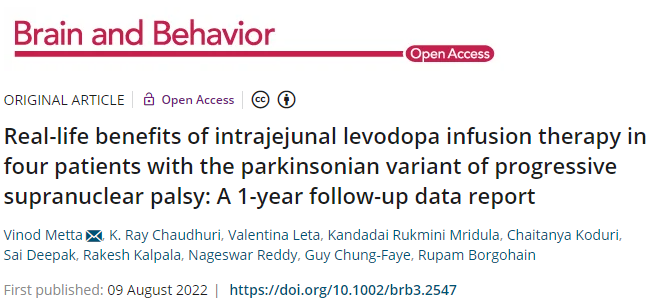Progressive supranuclear palsy (PSP) is a progressive neurodegenerative condition presenting with different clinical endophenotypes. The parkinsonian variant of PSP (PSP-P) is characterised by early but fading responsiveness to high-dose levodopa therapy; however, high-dose oral therapy is often associated with intolerance due to dopaminergic side effects and so doses may have to be capped despite clinical benefits. Evidence from animal models and real-life registries suggest far higher doses of levodopa can be tolerated if given in a continuous drug delivery (CDD) manner. We investigated tolerance and possible clinical benefits in patients with PSP-P still responsive to levodopa after initiating CDD in the form of intrajejunal levodopa infusion (IJLI) therapy as part of a compassionate usage program (CU).
IJLI led to persistent beneficial effects on motor and some nonmotor aspects in patients with PSP-P at up to 12 months after treatment with associated improvement in overall renal function.


